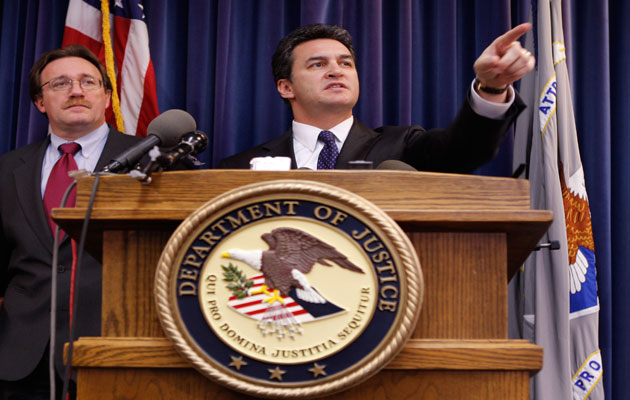Michael Garcia, who led the investigation into the 2018 and 2022 World Cup bid process, has resigned from the FIFA ethics committee and questioned the ability of football’s governing body to restore its reputation.
The former US attorney cited a “lack of leadership” at the top of FIFA. He also says he lost confidence in the independence of his ethics committee colleague, the German judge Joachim Eckert, whose summary of his findings Garcia had already disowned.
Garcia resigned a day after the FIFA appeals panel rejected his challenge of Eckert’s summary of the confidential 430-page investigation dossier into the controversial bidding process for the 2018 and 2022 World Cups.
Garcia claimed that Eckert misrepresented his work, writing: “[The] Eckert Decision made me lose confidence in the independence of the adjudicatory chamber, [but] it is the lack of leadership on these issues within FIFA that leads me to conclude that my role in this process is at an end.
“No independent governance committee, investigator, or arbitration panel can change the culture of an organisation.”
Garcia also revealed that the FIFA executive committee tried to have disciplinary proceedings opened against him in September. The attempt was rejected by the chairman of FIFA’s disciplinary panel.
Garcia was appointed in July 2012 to investigate the 2018-2022 World Cup bidding contests.
“For the first two years … I felt that the ethics committee was making real progress in advancing ethics enforcement at FIFA,” Garcia wrote. “In recent months, that changed.”
Since Garcia and his investigation team submitted their work in early September, there has been evident tension between him and Eckert.
Eckert’s 42-page report published by FIFA last month, effectively cleared both Russia and Qatar of any wrongdoing.
Garcia said his submission to the FIFA appeal committee outlined what he called “the most serious failings” of Eckert’s response.
“Among other points, the brief explained why, when viewed in the context of the report it purported to summarise, no principled approach could justify the Eckert Decision’s edits, omissions, and additions,” he said.
Eckert said any rule-breaking was of limited scope and did not influence the result of the December 2010 votes which led to the 2018 and 2022 World Cup being awarded to Russia and Qatar respectively.
“It now appears that, at least for the foreseeable future, the Eckert Decision will stand as the final word on the 2018/2022 FIFA World Cup bidding process,” Garcia wrote.
On hearing of Garcia’s resignation, a dismayed UEFA president Michel Platini said: “We wanted all transparency but this is a new failure for FIFA.”






